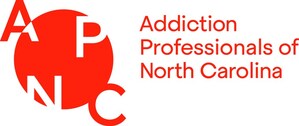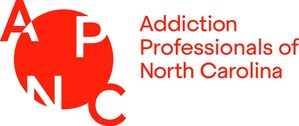
North Carolina's Frontline Behavioral Health Workforce: Overlooked, Overworked, Underpaid
RALEIGH, N.C., April 14, 2022 /PRNewswire/ -- Twenty-three percent of the frontline behavioral health workforce makes below $40,000 annually, $15,000 less than North Carolina teachers, despite having licenses/certifications, advanced degrees, or both. The average NC teacher makes around $54,000 annually; however, 44% of the frontline behavioral health workforce makes less than that.
Addiction Professionals of North Carolina (APNC) surveyed the frontline behavioral health workforce to examine the challenges in the field in reference to the impact of COVID-19. The survey results yielded four key findings:
- Salaries and wages do not reflect the value of licenses, certifications, degrees, and experience.
- Since COVID-19, there has been an increased demand for services and an increase in barriers to accessing services.
- The current workload and burden on the frontline behavioral health workforce is unsustainable.
- Requests from the frontline workforce include: raising salaries, waiving burdensome paperwork/regulations, loan and certification cost reimbursements.
Survey participants referenced the following short-term policy solutions to meet increased demand: (1) additional funding to hire qualified staff; (2) increased reimbursement rates; (3) extended/expanded telehealth services; (4) reduced paperwork/regulation that causes an unnecessary burden to both frontline and administration staff.
Executive Director of APNC, Sarah Potter, says, "This survey confirms what we see in our communities. We knew the situation was dire, but the survey results paint a more drastic picture of the often-forgotten frontline workforce for addiction and mental health services, indicating a clear need to change policies. With increased demand for services and 85% of the workforce facing burnout symptoms, we need to act now to keep the remaining workforce in place and build a sustainable environment for incoming professionals."
APNC calls on our local and state policymakers to:
- Target approaches that address the health and wellness of the existing frontline behavioral health workforce.
- Answer the call of the field by implementing the suggested short-term policy solutions
- Place Specific Investments in: partnerships to strengthen the behavioral health infrastructure in high need areas; strategies to diversify the workforce to better serve communities of color; strategies to mentor and rapidly on-ramp the skills sets needed to address current, complex needs; strategies aimed to drive high-impact innovation for the purpose of improving the functioning of our systems
APNC is the only NC professional membership organization with a legislative voice that advocates exclusively on behalf of addiction professionals, organizations, and the communities they serve.
Contact:
Morgan Coyner
Communications Director
[email protected]
804-317-8107
SOURCE Addiction Professionals of North Carolina








Share this article